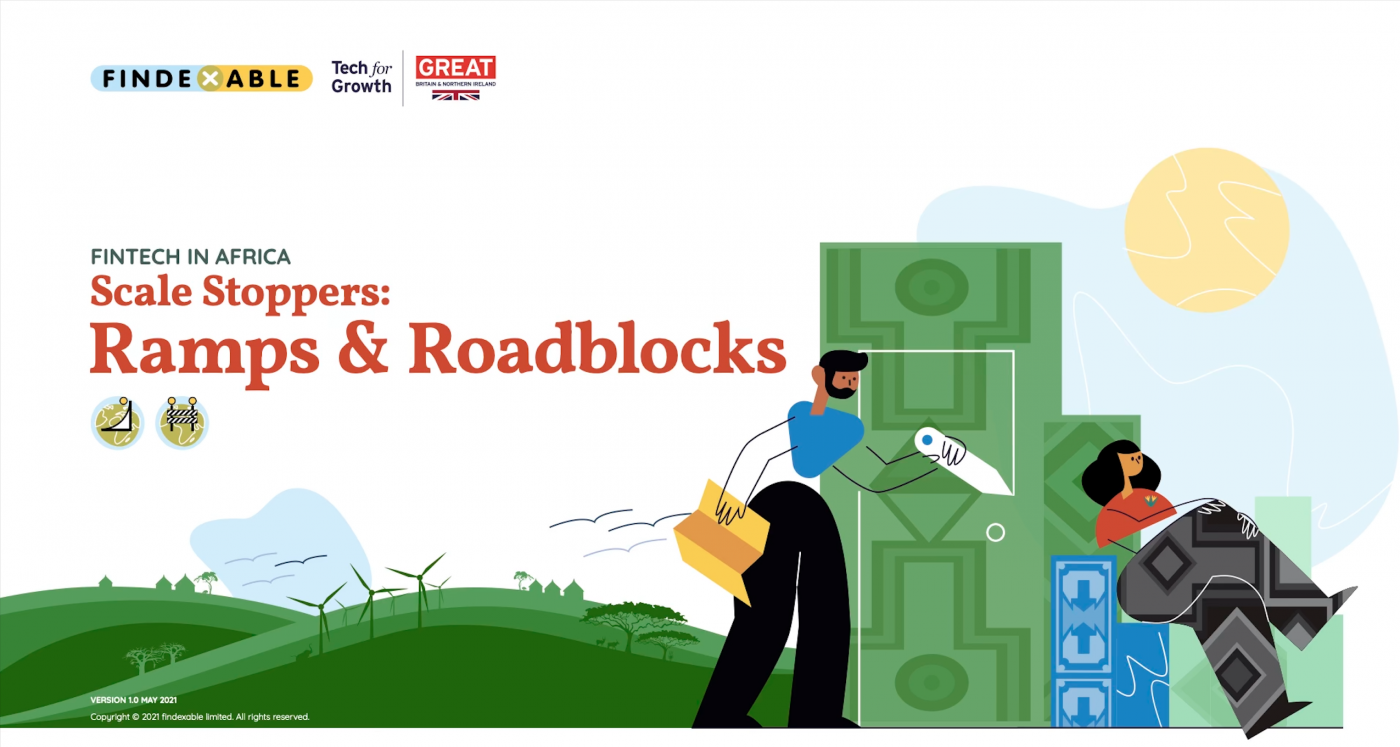
Earlier this month I chaired a webinar on fintech in Africa, sponsored by findexable and the Department for International Trade’s African tech hubs.
The webinar included presentations by Simon Hardie, Co-Founder & CEO of findexable, outlining the key findings of Global Fintech Rankings Report 2021, and by Augustine Owusu, Trade Advisor at the Department for International Trade (Ghana), discussing the recent digital readiness of business survey in Ghana. This was followed by an expert panel discussion with Lebo Mokgabudi, a fintech advisor in South Africa, Ali Hussein Kassim, CEO of Kipochi and Chairman of the Kenya FinTech Association, and Sheena Raikundalia, Director at the UK-Kenya Tech Hub.
Here are my key takeaways from our discussions that day:
1) Fintech in Africa has evolved and today is more than just mobile payments and remittances. As Simon put it, fintech is now systemically important and digital financial services have proved an essential lifeline during the pandemic, enabling people to transact and access essential services. The latest wave of fintechs is creating opportunities for embedded finance (everything from food deliveries to insurtech) and B2B fintech is flourishing, with a plethora of new platforms to help traders access stock and services and to make payments for farmers, solar energy, health care and insurance.
2) COVID-19 has accelerated digital adoption across Africa. Ali described the process as CADIT (COVID-Assisted Digital Transformation), noting that the number of users of M-PESA – which accounts for 98.5% of digital payments in Kenya – surged from 37 million at end-2019 (before the pandemic) to over 48 million in the first quarter of 2021. The stats from Augustine’s presentation mirrored this rate of digitalisation in Ghanaian businesses, with over two thirds using digital and social media platforms for marketing and over a third offering customers the opportunity to make online orders.
3) COVID-19 has also widened the digital divide, especially in education. Students with computers and access to the Internet have, on the whole, managed through the crisis, but the millions of kids who do not have access have struggled. The high cost of data also remains a huge barrier for would-be software developers and online students. This suggests that removing the barriers to digital access is now a critical factor in delivering better education (rather than building more schools), as well as other essential services, such as health.
4) A major concern is the availability of digital talent and skills in Africa. It’s clear there is no lack of native talent – take Lagos’s designation as the ‘coding capital of the world’. But outside tech hubs in Cape Town, Johannesburg, Nairobi and Lagos, there is little access to training in digital skills or opportunities to develop them. Ironically the biggest demand for digital skills does not come from start-ups but from Africa’s vast SME sector, which is digitalising as rapidly as the rest of the economy. This problem has been exacerbated by the tendency of tech giants to hoover up Africa’s digital talent, easily outcompeting local start-ups on salaries and benefits. For example, Microsoft’s African Development Centre (ADC) has hired over 300 software engineers from Kenya in last 18 months. However, we also heard of several initiatives to boost access to digital skills. These included No Code/Low Code webinars (where anyone can learn how to build an app or a website with little or no previous experience), We Think Code (South Africa) and Learning Lions, a project in Lodwar (Kenya) to teach rural children coding skills.
5) When it comes to regulation, Ali felt the problem is that regulators have ‘no skin in the game’ but are not afraid to use their muscle to regulate fintech. In his view, fintechs must have a seat at the table for discussions on new regulation; if not, they could wake up one day and find they have been regulated out of business. But there has been progress: Sheena highlighted the work of BimaLab and Kenya’s Insurance Regulatory Authority (IRA) which have shepherded two cohorts of insurtechs through the sandbox and which are developing a toolkit for start-ups to navigate the regulatory landscape. One suggestion from Lebo was that regulators should consider a tiered structure of licensing, with easier conditions for start-ups during their early phase and a roadmap for moving up the regulatory ladder.
6) Another topic we covered was ‘start-up poverty’, i.e. the lack of finance and support for start-ups across Africa. The problem is that start-ups are expected to be business-ready and investor-ready, but capital needs to be contextualised to suit its market. In Lebo’s view there are numerous venture capital firms in South Africa, but most of them are risk averse! Rather than investing in early-stage tech companies – under the Silicon Valley model – they have unrealistic demands of African start-ups, with the result that investment tends to go to where there is already a relationship and trust. In her view, funding needs to go to companies that are trying to solve Africa’s local problems, not to the next Uber or TikTok.
That’s all for now. Please share your responses and views in the comments.
You can listen to a podcast I produced from the webinar, bringing together the best parts of our discussions, here: https://spoti.fi/2TMQJRY